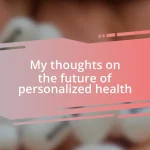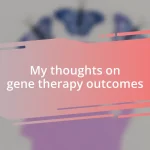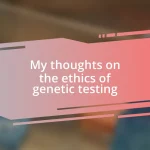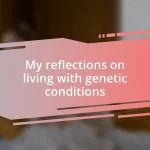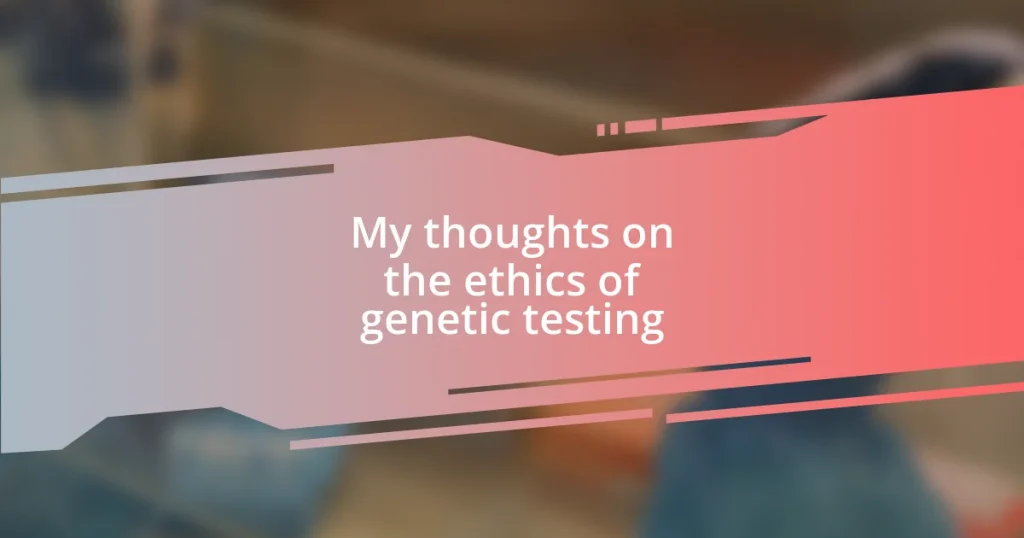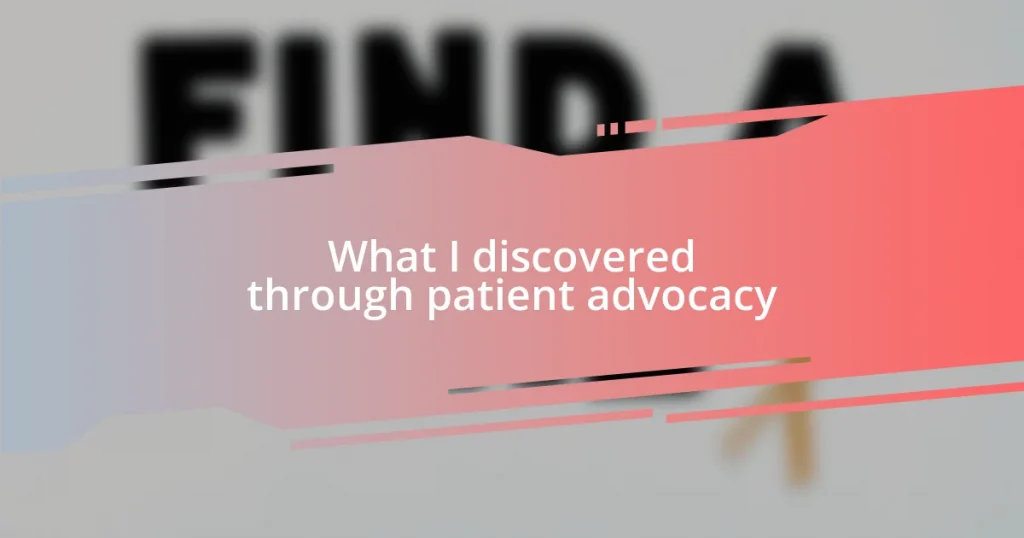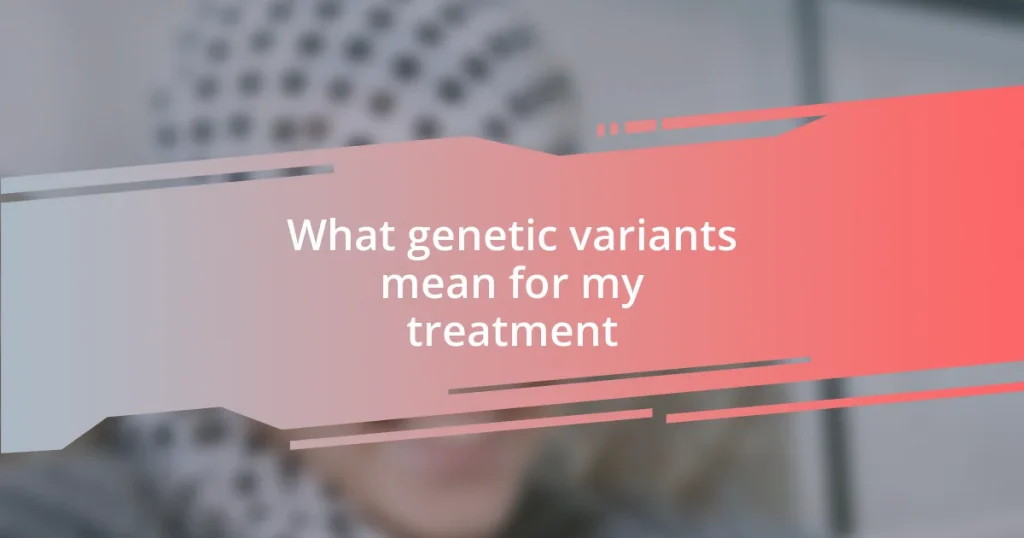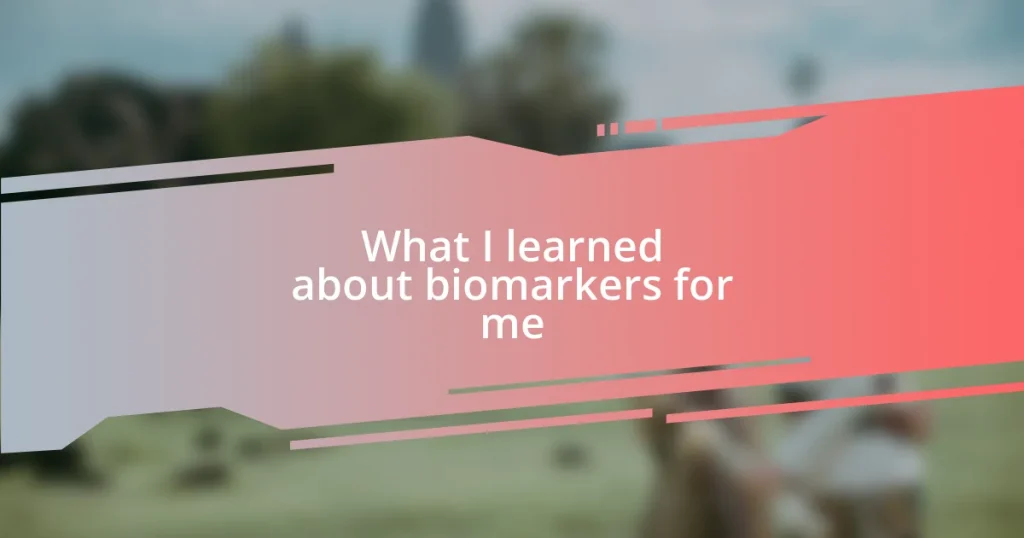Key takeaways:
- Understanding informed consent is crucial in genetic testing, requiring individuals to comprehend the implications and privacy concerns of their genetic data.
- While genetic testing offers significant benefits like proactive health management and personalized medicine, ethical dilemmas such as genetic discrimination and the concept of ‘designer babies’ pose critical challenges.
- The future of genetic testing ethics will depend on equitable access to testing, the safeguarding of personal data, and inclusive discussions on ethical boundaries involving diverse perspectives.
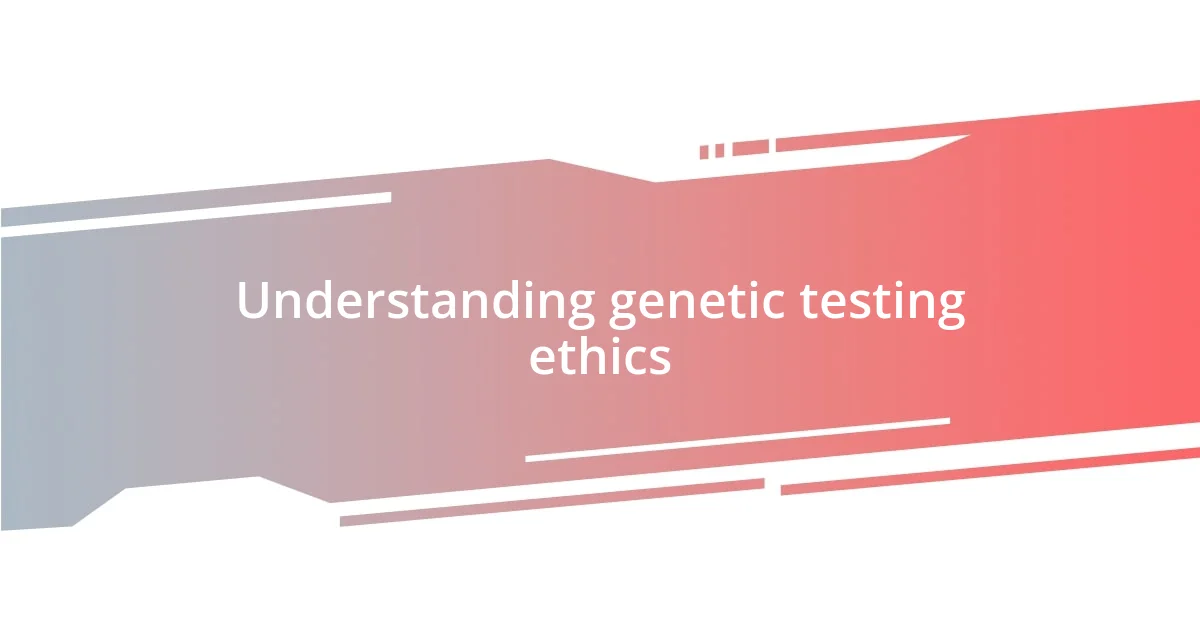
Understanding genetic testing ethics
Understanding the ethics of genetic testing can feel like navigating a complex maze. When I first encountered the concept of genetic testing, I was both fascinated and apprehensive. It raised immediate questions: Who owns this genetic information? Can it be used against us? These questions linger like shadows, reminding us that ethical considerations are not just theoretical—they impact real lives.
One important aspect of genetic testing ethics revolves around consent. I remember discussing this with a friend who underwent testing and felt a mix of empowerment and anxiety. She wondered if her family truly understood the implications of the results. Just because we can access this genetic information doesn’t mean we should rush into it without fully grasping the consequences.
Then there’s the issue of privacy. I often think about how easily data can be mishandled in our digital age. If I were to take a genetic test, I would want reassurance that my data remains confidential and secure. What safeguards are in place to prevent misuse of my sensitive information? The emotional weight of knowing this data exists is heavy—it’s not just numbers or letters; it’s a glimpse into my identity and potential future.
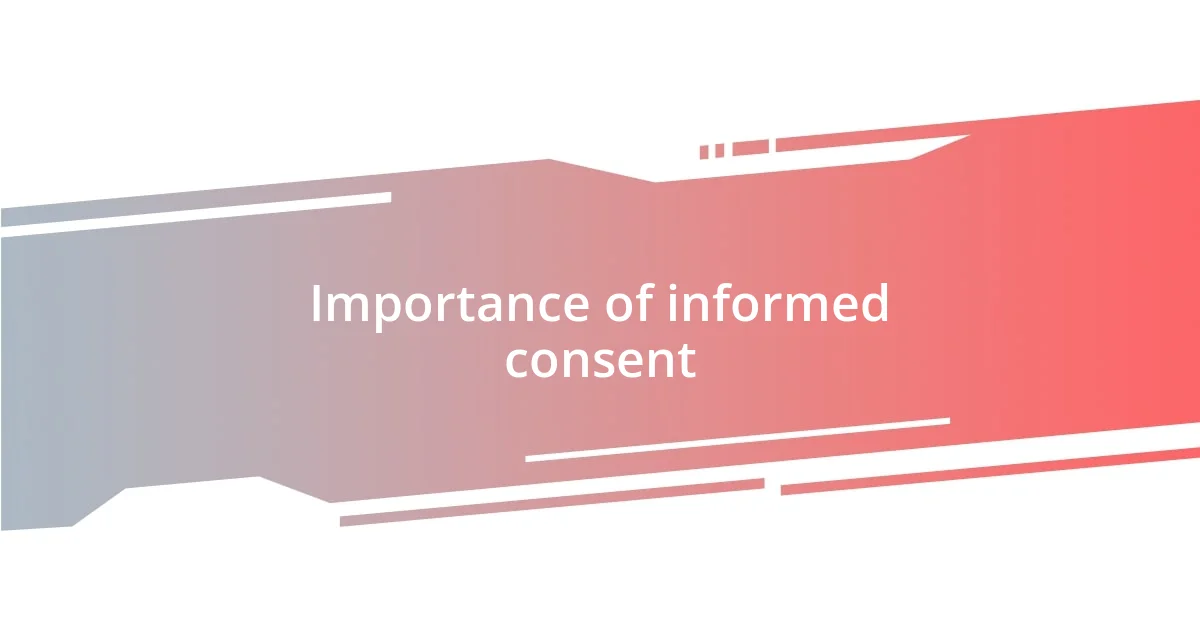
Importance of informed consent
Informed consent is a cornerstone of ethical genetic testing. When I think about the process, it reminds me of my experience volunteering at a community health fair. Many people were eager to know about their genetic makeup, but they often didn’t realize the depth of what they were agreeing to. It’s crucial that individuals not only know what a test entails but also understand the potential emotional and social implications of the results. Every piece of information holds the power to influence decisions in profound ways.
When discussing informed consent, I find it helpful to break it down into key elements:
- Understanding the Test: Individuals must grasp what the genetic test is for and what kind of information it provides.
- Implications of Results: Clear communication about how the results may affect personal health, family relationships, and even insurability is vital.
- Data Privacy: Consent should include insights on how genetic data will be stored, who will have access, and how it might be used in the future.
- Voluntary Participation: It’s essential that individuals feel they can opt-out without any coercion, which taps into their sense of agency.
- Right to Withdraw: Consent should be an ongoing process, allowing participants the choice to withdraw at any point—an empowering aspect that keeps them in control.
By focusing on these elements, I believe we can demystify the process and encourage individuals to make well-informed choices that align with their values.
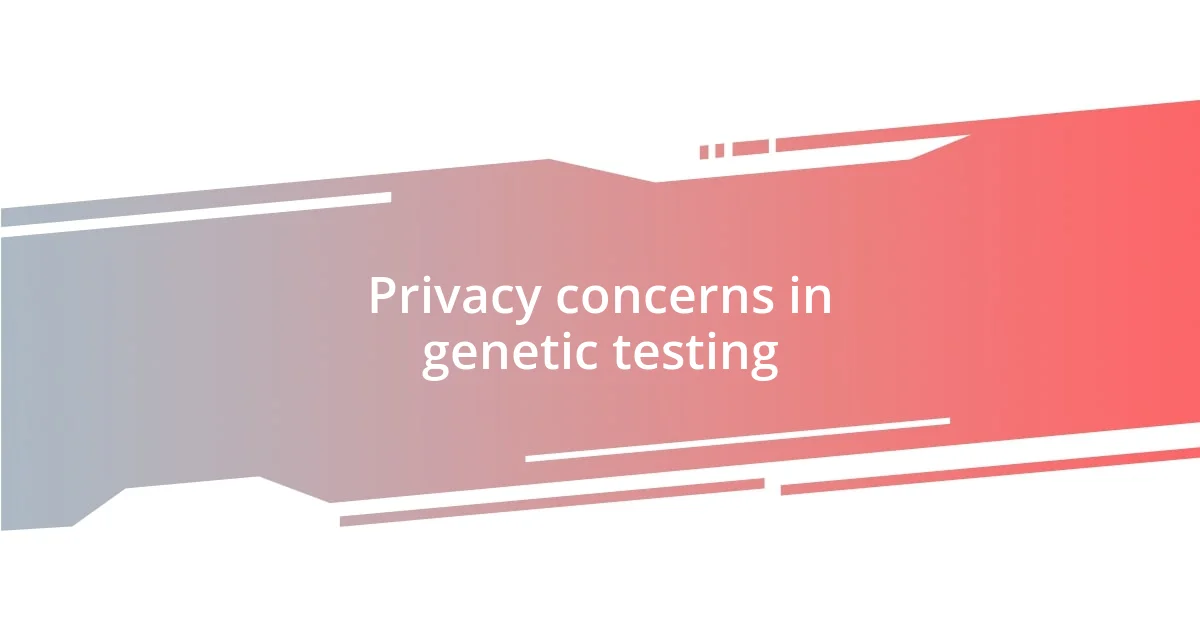
Privacy concerns in genetic testing
The issue of privacy in genetic testing is a pressing concern for many individuals. In a world where data breaches are an unfortunate reality, I often find myself wondering about the safety of my genetic information. The thought of this intimate data falling into the wrong hands can be quite unsettling. I remember a friend who decided to get tested, only to discover that some companies had vague privacy policies. This left her feeling exposed, as if her genetic makeup was up for grabs.
What resonates with me is the complexity of data ownership. If I hand over my genetic information, who really controls it? It’s like lending a diary filled with personal thoughts—once it’s out, I can’t fully dictate how it is used. I recall a time at a family gathering when we discussed the possibilities of genetic health insights. It was enlightening to see how quickly the conversation shifted to fears of how that information could alter personal relationships or even insurance premiums. The blend of curiosity and trepidation we felt illustrated just how deeply privacy concerns cut into the fabric of our lives.
To put this into perspective, consider how different entities might approach genetic data differently. A medical institution might emphasize patient confidentiality, while a commercial company may prioritize profits, often at the cost of consumer privacy. For me, it’s essential to weigh these differences carefully. When choosing a genetic testing service, I feel it is my responsibility to advocate for my privacy. After all, understanding the potential risks is a key part of making a fully informed decision.
| Aspect | Medical Institutions | Commercial Companies |
|---|---|---|
| Data Handling | Strict confidentiality and regulatory compliance | Variable policies; often less transparent |
| Purpose of Collection | Primarily for health-related insights | Potentially for marketing and profit |
| User Control | Greater emphasis on patient rights | May offer limited control over data usage |
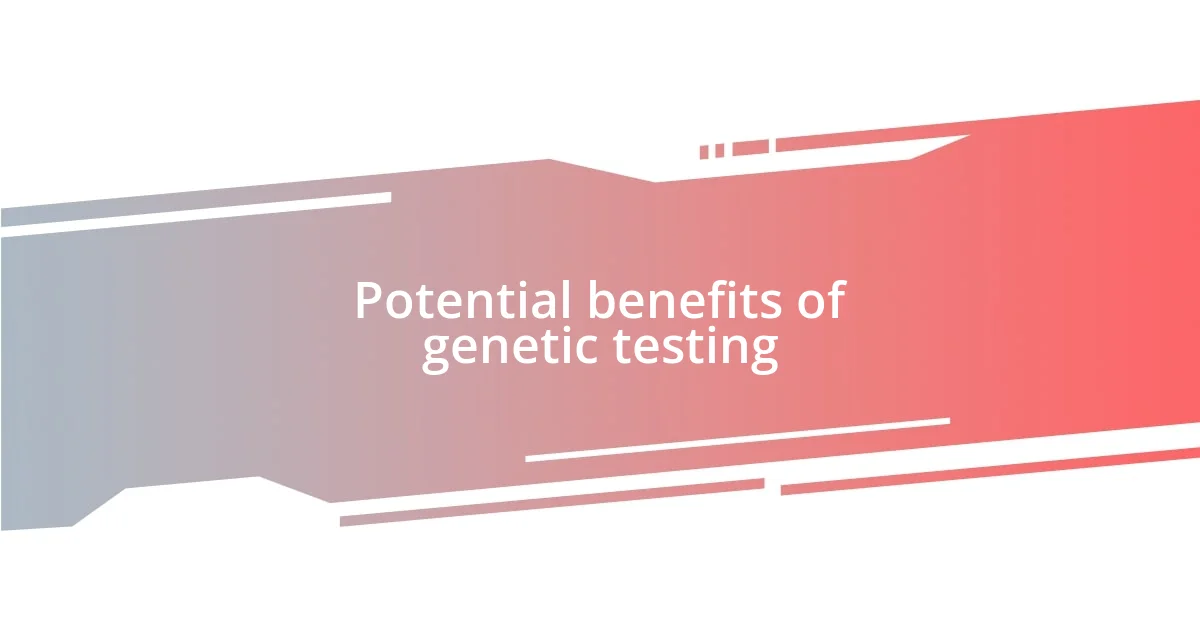
Potential benefits of genetic testing
The potential benefits of genetic testing truly spark my interest. One standout advantage is the proactive approach to health management. For instance, when I learned about a genetic test that could predict my risk for certain hereditary conditions, I felt a sense of empowerment. Instead of waiting for symptoms to arise, I could take preventive measures—whether it meant changing my lifestyle or scheduling regular screenings. Isn’t that a fascinating way to take charge of our health?
Moreover, genetic testing can aid in personalized medicine. I remember reading about a friend who discovered through genetic testing that a certain medication wasn’t effective for her. Armed with this information, her doctor adjusted her treatment plan, and she finally found relief. This kind of tailoring is revolutionary. It’s incredible how our unique genetic makeup can guide the most effective therapies. Doesn’t it make you wonder just how much potential lies in our DNA?
Another significant benefit is the way genetic testing can enhance family planning. Imagine being able to understand hereditary conditions that might affect future generations. When my cousin and her partner opted for genetic testing before starting a family, they uncovered valuable information that informed their choices. They were able to make informed decisions that not only impacted their health but also that of their children. It’s such a profound responsibility, isn’t it? The thought that knowledge could lead to healthier, happier lives is something I find inspiring.
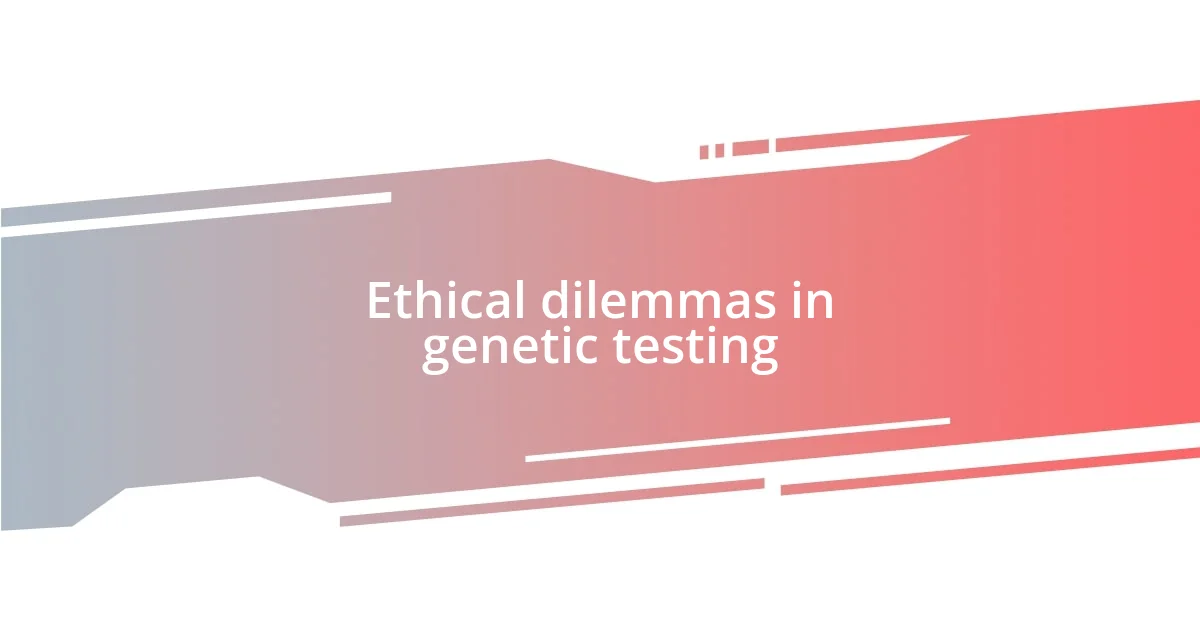
Ethical dilemmas in genetic testing
The ethical dilemmas surrounding genetic testing can be quite intricate and often evoke strong feelings. One prevalent issue involves the idea of informed consent. I remember when a colleague shared how she underwent testing without fully understanding the implications of the results. It made me realize that even in well-meaning efforts, there can be a disconnect between the information provided and the knowledge needed to truly comprehend it. How can we ensure that individuals grasp the weight of their choices?
Another significant concern is the potential for genetic discrimination. Imagine applying for a job or health insurance and facing biases based on your genetic predispositions. I once spoke with someone who was hesitant to get tested, fearing that the data could jeopardize future opportunities. This fear is not unfounded; it illustrates how the knowledge gleaned from our genes can shape societal perceptions and choices in harmful ways. Shouldn’t everyone have the right to seek health insights without the looming shadow of discrimination?
Lastly, the concept of ‘designer babies’ often surfaces in discussions about genetic engineering. It raises the question of where we draw the line between enhancement and natural variation. I find myself pondering the implications of selecting traits for future generations. While the advancements in technology are undoubtedly fascinating, I have to ask—are we prepared for a world where genetic selection leads to unintended societal divides? It’s a thought-provoking issue that invites us to consider the broader consequences of our actions today.
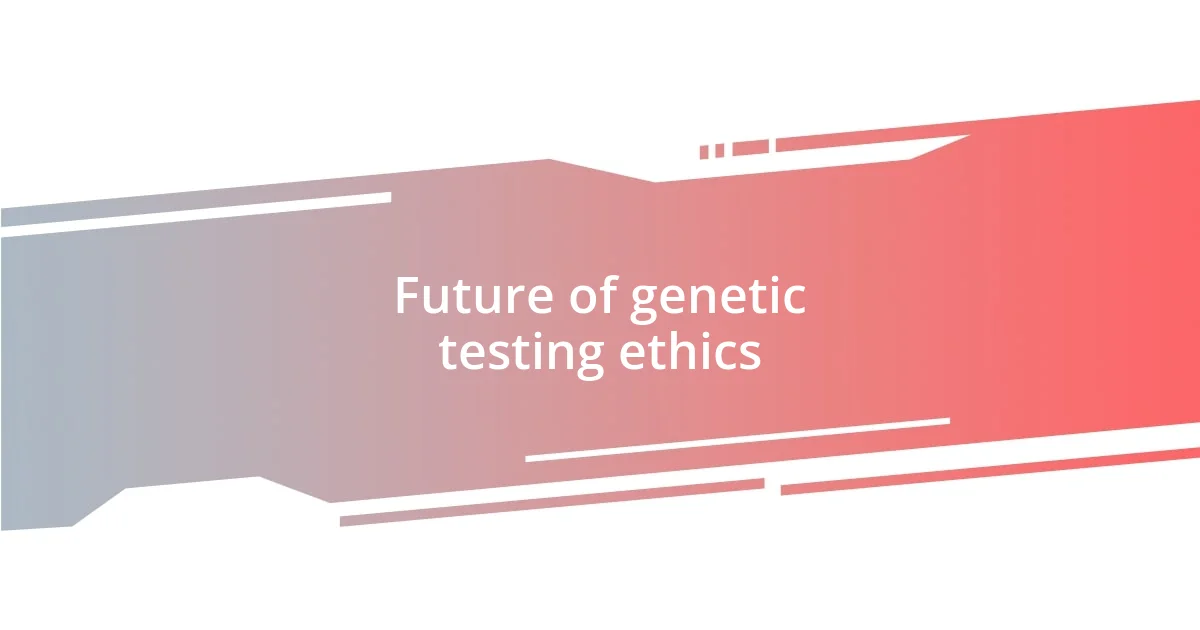
Future of genetic testing ethics
The ethical landscape of genetic testing is poised to shift dramatically as technology evolves. I often think about a future where access to genetic testing is as routine as a visit to the doctor. What if everyone could have comprehensive genetic insights at their fingertips? This raises some tantalizing prospects but also gives me pause when considering issues of equity. Will everyone have access, or will it be a privilege enjoyed by a select few? I can’t help but feel that access could shape societal health outcomes in ways we can’t yet fully grasp.
Another emerging consideration is the role of data ownership and privacy. I still remember when my own health data was involved in research without my explicit consent. It sparked a flurry of thoughts about what happens to our genetic information after testing. As we look to the future, I wonder how we can safeguard personal data while still leveraging it for scientific progress. Will individuals be empowered to control their own genetic data, or will it be treated like a commodity? The tension between innovation and privacy issues is a conversation we need to have now, not later.
Lastly, thinking about the future of genetic testing ethics, I find myself reflecting on the idea of genetic authority. Who gets to decide the ethical boundaries? I believe it’s essential for us to include diverse voices in these debates—from ethicists to affected communities. As I consider the possibility of gene editing for conditions like Huntington’s disease, I ask, who are we to make these decisions without a wide-ranging discourse? The stakes are incredibly high, and I truly feel that open dialogue is vital in shaping an ethical framework that respects not only individuality but also our collective humanity.




